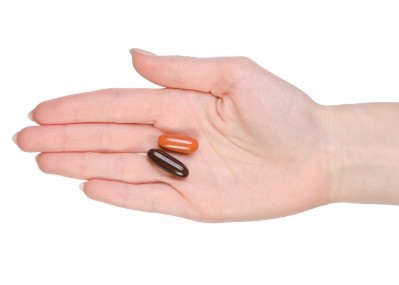From the Editor's Desk
Vitamin D & bone health: The flawed logic of RCTs for vitamins

Data from 81 RCTs totaling almost 54,000 participants indicated that vitamin D supplementation did not significantly impact fracture, falls, or bone mineral density. The meta-analysis was published in Lancet Diabetes & Endocrinology (doi: 10.1016/S2213-8587(18)30265-1).
“Vitamin D supplementation did not have meaningful effects on fracture, falls, or bone mineral density, and future trials are unlikely to alter these conclusions,” wrote the authors, affiliated with the University of Auckland (NZ) and the University of Aberdeen (UK). “Therefore, there is little justification for the use of vitamin D supplements to maintain or improve musculoskeletal health, and clinical guidelines should reflect these findings.”
At least one industry leader was shocked by these conclusions, given the wealth of scientific research and medical guidance in the US and around the world.
Vitamin D alone may not directly boost our bone mineral density, although some RCTs do show a benefit. After all, we are complex organisms and the effects of nutrients are often subtle. They also work together, and so vitamin D plus calcium plus vitamin K could reasonably be expected to support bone health. Vitamin D helps us absorb calcium while vitamin K helps ‘fix’ calcium in our bones (and keeping calcium out of our arteries).
To conclude that we should stop researching vitamin D supplements and that they are of no value for bone health does a disservice to consumers, many of whom are at risk of insufficiency and deficiency for significant portions of the year. Some may now decide against exploring vitamin D-containing supplements to fill nutrient gaps.
Magnesium is another important bone mineral. If we isolated it and put it into an RCT could we see benefits? Maybe: There are some small RCTs that would support this. But savvy nutrition experts should recommend a combination of nutrients to enhance musculoskeletal health.
The flawed logic of RCTs for vitamins
But for me, this brings us back to this flawed approach of isolating essential nutrients and testing them according to the drug model. Regular readers of these pages over the years will know the story: Randomized clinical trials take one nutrient – or a very limited number of nutrients – at a specific dose or doses, and give them to (usually) diseased or unhealthy individuals and wait to see if 3 months or 6 months or 1 year of supplementation can reverse the progression of the aforementioned disease or condition. And when these benefits fail to materialize, critics loudly proclaim, “dietary supplements do not work!”
Many of these studies do not assess baseline levels (to be fair, the vitamin D studies in the new meta-analysis did), or don’t fully discuss how many people actually took the supplements (compliance). Or they ignore the fact that you cannot truly control for nutrients in such a population, because, ethically, you cannot deny a percentage of your study participants an essential nutrient for 3 months or more.
I am not dismissing the value of these kinds of clinical trials for dietary supplements. They are considered the gold standard and if the industry is to win over the doubters and the critics, then RCT data will play a big role. We need more science for dietary supplements, not less, but knowing how and when to use RCTs is vital. For botanical extracts, which contain very specific bioactive compounds that are often lacking or totally absent from the diet, the RCT model should provide meaningful data. bBut for vitamins and minerals, it is important to assess the totality of the evidence. And when it comes to vitamin D and bone health, the totality of the evidence strongly says it helps.
Is vitamin D alone a magic bullet? No – and I don’t know many responsible people who claim it is – so can we please stop using a flawed research model to try to play ‘gotcha!’?
The sunshine vitamin
Vitamin D refers to two biologically inactive precursors - D3, also known as cholecalciferol, and D2, also known as ergocalciferol. Both D3 and D2 precursors are transformed in the liver and kidneys into 25- hydroxyvitamin D (25(OH)D), the non-active 'storage' form, and 1,25-dihydroxyvitamin D (1,25(OH)2D).
Vitamin D deficiency in adults is reported to precipitate or exacerbate osteopenia, osteoporosis, muscle weakness, fractures, common cancers, autoimmune diseases, infectious diseases and cardiovascular diseases. There is also some evidence that the vitamin may reduce the incidence of several types of cancer and type-1 and -2 diabetes.
While our bodies do manufacture vitamin D on exposure to sunshine, the levels in some northern countries are so weak during the winter months that our body makes no vitamin D at all, meaning that dietary supplements and fortified foods are seen by many as the best way to boost intakes of vitamin D.
Stephen Daniells is the Editor-in-Chief, North and South America of William Reed Business Media, which includes the market-leading publications NutraIngredients-USA and FoodNavigator-USA. Stephen obtained a PhD in chemistry from the Queen’s University of Belfast, Northern Ireland, and held post-doctoral research positions in The Netherlands and France before taking the leap into journalism in 2005. In 2015, he received the American Herbal Products Association’s Special Award for Journalistic Excellence. Stephen also acts as the editorial consultant and chair of William Reed’s Probiota Americas event.

















